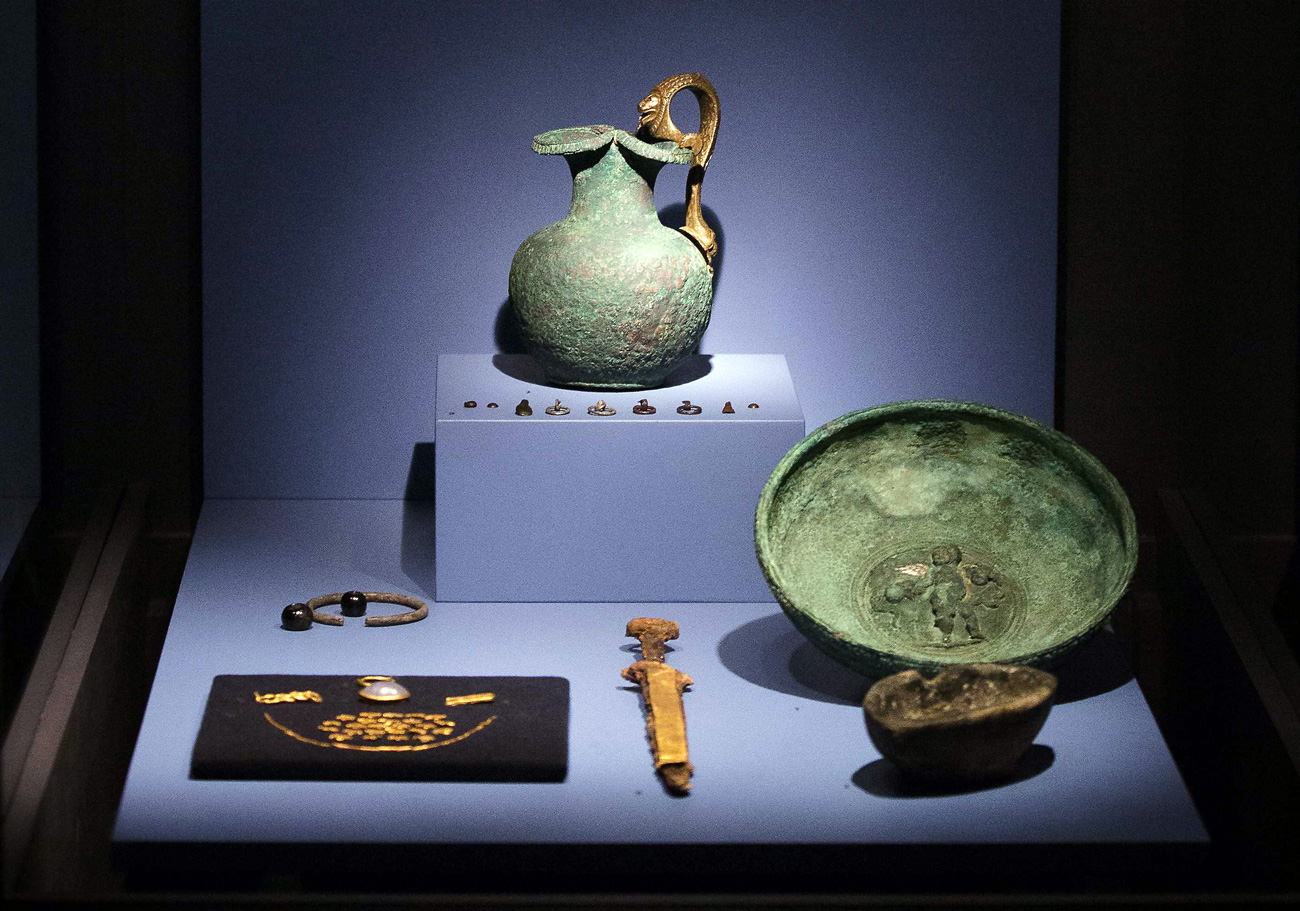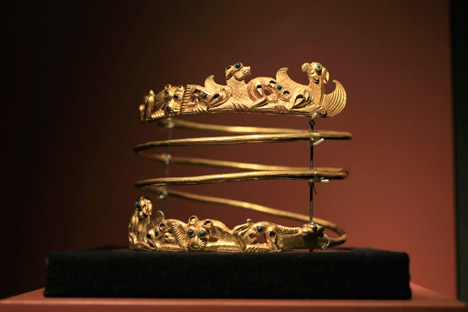Russia to appeal as Dutch court orders return of Scythian gold to Ukraine

The exhibition 'Crimea: Gold and Secrets of the Black Sea' at the Allard Pierson Museum in Amsterdam, The Netherlands, August 2014.
EPAA court in Amsterdam has ruled that 500 Scythian gold artifacts loaned from a collection in Crimea to a Dutch museum prior to Russia’s takeover of the peninsula in 2014 should be returned to Ukraine, not to the museum in Crimea.
The Dec. 14 decision by the court, which ruled that Crimea is not a sovereign state and so has no claim to the gold as cultural heritage, is a blow to Russia, which had argued that the gold should be returned to the institution from which it was originally loaned
The legal battle over the treasures, which were found on Crimean territory, began in March 2014 when Moscow seized control of the Black Sea peninsula from Ukraine.
A month before, in February 2014, the exhibits had been taken to the Allard Pierson Museum in Amsterdam for the "Crimea – a Golden Island in the Black Sea" exhibition, which was organized with the participation of four Crimean museums and one Kiev museum. The exhibition showed exhibits dating from the sixth century BC to the seventh century AD: weapons, sculptures and decorations.
Subsequently, both the Crimean museums, which are now under Russian jurisdiction, and the Ukrainian Culture Ministry demanded the return of the Scythian gold, whose insurance value is over 1 million euros (around $1 million).
Russian politicians unsatisfied
The Amsterdam court explained that both countries claimed the gold but the Netherlands first has to return the collection to Ukraine, where the local court will examine Russia's claims. Russia was unsatisfied with this decision.
"The agreements [to hold the exhibition] were concluded with Crimean museums, not with Ukraine," said Georgy Muradov, deputy chairman of the Crimean government. "This was not done on a governmental level but on the level of museum organization." Muradov believes that the Netherlands should return the artifacts directly to the Crimean museums, regardless of the nation to which they now belong.
Speaker of the Russian Federation Council Valentina Matvienko claimed that the ruling had established a dangerous precedent that could lead to "world museums stopping inter-museum exchanges," the RIA Novosti news agency reported.
Museum specialists divided over ruling
Mikhail Piotrovsky, director of St. Petersburg’s State Hermitage Museum, also regrets the Amsterdam Court's decision, offering the simple argument that "objects from Crimean museums must remain in Crimean museums." Piotrovsky explained that the Scythian artifacts were found on Crimean territory and are part of the culture and history of the people who live in Crimea.
On the other hand, Yelena Gagarina, director of the Moscow Kremlin Museum, agrees with the court, arguing that “the objects were taken out of Ukrainian territory and belonged to Ukraine as a state." She pointed out that museum collections are the property of the state, not of individual museums or repositiories, making the decision by the Netherlands to return the artifacts to Ukraine a logical one.
The litigation continues
The ancient Scythian gold will remain in Amsterdam for another three months until the expiration of the deadline to file an appeal. Attorney Anastasia Sivitskaya, who represents the Crimean museums at the Amsterdam Court, has already said that she will file an appeal.
The Russian Culture Ministry stated categorically: "The Amsterdam's Court decision to return the gold to Ukraine violates international law and the principles of inter-museum exchange. The museum objects must be returned to Crimea, where they were found and kept for decades," said a ministry press release.
Read more: Netherlands refuses to return Crimean Scythian gold to Russia or Ukraine>>>
Subscribe to get the hand picked best stories every week
All rights reserved by Rossiyskaya Gazeta.
Subscribe
to our newsletter!
Get the week's best stories straight to your inbox
